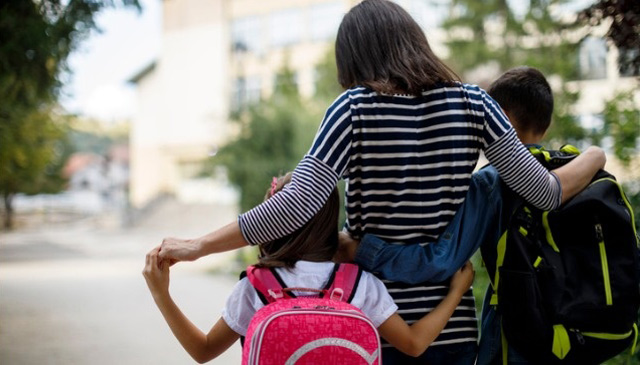
As we approach the back-to-school season, many of us are preparing our kids for another reconstructed school year in a continuously evolving pandemic. While more schools reopening the traditional classroom setting, our communities are also navigating through emerging variants and rising infections. It is natural for parents and caregivers to be anxious and concerned about their kids’ safety and well-being, especially with shifting masking guidelines.
Dr. Karin Price, Chief of Psychology for Texas Children’s, shares some helpful tips to help parents and caregivers manage their own anxiety, and more importantly, help their kids feel confident about returning to school.
- Acknowledge the anxious feelings and worries, while also setting the expectation for bravery. Telling kids (or ourselves) “Don’t worry” or “Everything will be fine” disregards our natural response to a stressful and uncertain situation. Instead, we can help children learn to label their feelings by saying things like, “Sounds like you are feeling worried about going back to school.” We can then acknowledge that the situation is stressful, while also communicating that the child is brave and can handle difficult situations. “Lots of kids and families are feeling nervous about going back to school this year. It may be hard, but I know you can handle it because you’re a brave kid.”
- Don’t let your (or your child’s) worries feed the anxiety. We know there is a strong connection between thoughts and feelings, and during times of uncertainty the “what if” thoughts can become overwhelming. These worries tend to build on one another and create a cycle of escalating anxiety. Instead of allowing these thoughts to feed the anxiety, try to focus on things that are within your control. For example, if a parent is worried that the other kids or adults in the school setting will not be wearing masks, they can redirect their thoughts to simple problem solving. “I can only control my child, and she will wear a mask to school every day to help keep her safe.” It is important to move on to something more deserving of your attention.
- Model bravery and healthy coping with uncertainty. Kids often take cues about how to respond to a situation from their caregivers. If they hear parents in emotional discussions about more adult topics (such as whether rules around masking are appropriate, concerns about the efficacy of vaccines against new virus variants, or anxiety about illness or death), it may be very hard for them to feel confident and brave returning to school.
Instead, we can acknowledge their own anxiety while also modeling how to cope. “I am a little worried about everyone going back to school, too. It feels especially hard this year, but I know we will handle it together.” Modeling flexibility and acceptance of things beyond our control is also important during times of uncertainty, especially by avoiding negative talk about other people. A caregiver may say something like, “I also don’t like it that many of the kids in your class don’t wear masks. I wish everyone would, but I can’t control everyone. I can just make sure that the people in our family make the best choices for our own health and safety.”

